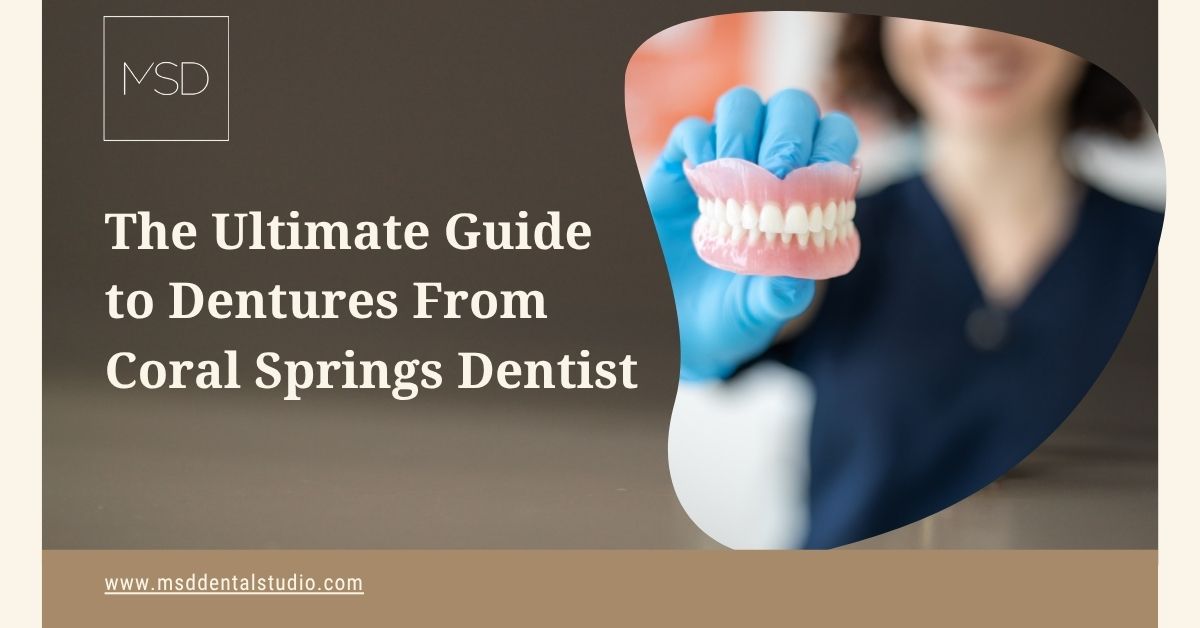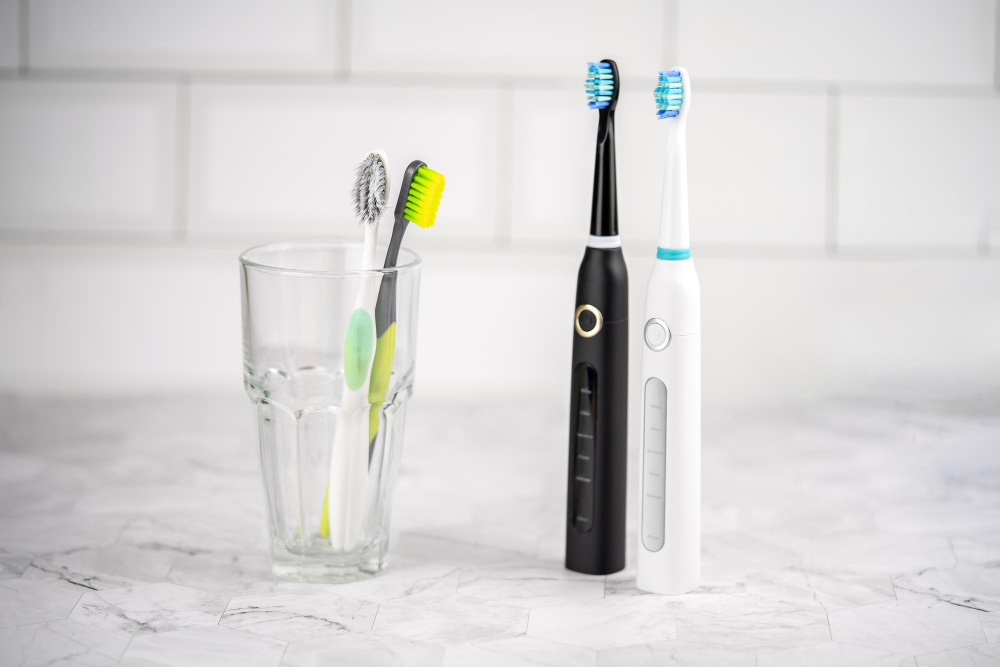Missing teeth can impact more than just your smile; they can make chewing difficult and speech unclear, and may lead you to avoid mirrors or make social interactions difficult. The emotional and physical impact of tooth loss creates daily hurdles that are rarely discussed.
Whether due to age, decay, injury, or whatever the reason, the gap left behind can work away at your self-esteem. Fortunately, you don’t have to put up with that discomfort forever.
Dentures in Coral Springs are a viable way to bring back your smile and comfort so you can eat, talk, and live comfortably again.
🦷 Table of Contents
🎧 Listen to Our Dental Experts Talk About Dentures
What Are Dentures?
Dentures are removable prosthetic devices created to replace missing teeth and surrounding soft tissues.
They are built to fit tightly in your mouth, either upper or lower, and to imitate the look and function of natural teeth. Dentures today are far more advanced than they were in the past; products today are lighter weight, more comfortable, and prettier.
What Are the Different Types of Dentures?
Understanding the types of dentures is key to making an informed decision. Here’s a breakdown:
Complete Dentures
Complete dentures replace all teeth in the upper or lower jaw and rest directly on the gums and are typically made of acrylic.
Partial Dentures
Partial dentures are used when one or more natural teeth remain; these consist of replacement teeth attached to a gum-colored base and may have metal clasps that hold them in place.
Implant-Supported Dentures
Dental implants that have been surgically inserted into the mandible are attached to implant-supported dentures. They are particularly helpful for people who have experienced severe bone loss and provide improved stability.
Immediate Dentures
As the name itself says, immediate dentures are placed immediately after tooth extraction, so you never have to be without teeth. Adjustments are usually needed as healing progresses.
Overdentures
Overdentures fit over a small number of remaining natural teeth or implants, providing added support and retention.
The right choice depends on oral health status and bone structure, and your dentist in Coral Springs will recommend the best option based on a detailed evaluation.
How Are Dentures Made?
There are mainly four steps involved when placing dentures:
- Initial Evaluation: A comprehensive dental exam, X-rays, and impressions are taken.
- Model Creation: Wax or plastic models are used to check fit and appearance.
- Fitting: Once the final denture is created, adjustments are made to ensure comfort and bite alignment.
- Follow-Up: Regular visits are important to address any discomfort or shifting over time.
Each denture is personalized, meaning the fit and feel will vary from person to person.
Major Challenges of Wearing Dentures
Denture wearers often experience challenges such as:
- Sore spots or discomfort in the first few weeks
- Difficulty pronouncing certain words
- Trouble chewing hard or sticky foods
The above-mentioned issues usually subside with time and proper adjustment. Your dentist near you can help make minor corrections and give tips to ease the transition.
Denture Maintenance Tips for Longevity
Proper care is crucial for preserving denture function and hygiene. Below are essential denture maintenance tips:
- Clean Daily: Use a soft-bristled brush and non-abrasive denture cleanser to remove plaque and food.
- Soak Overnight: Store dentures in a denture solution or water to keep them moist.
- Handle with Care: Avoid dropping them; handle them over a towel or sink with water.
- Avoid Harsh Chemicals: Never use bleach or boiling water.
- Regular Checkups: Visit your dentist in Coral Springs every six months to assess your fit and oral health.
- Rinse After Eating: This helps clear away food particles and reduce odour.
Improper care can lead to fungal infections, bad odour, and poor fit over time.
When Should You Replace Your Dentures?
Even with perfect care, dentures don’t last forever. Here are signs it’s time for a replacement:
- Difficulty chewing or speaking
- Persistent gum irritation or sores
- Changes in facial structure or jaw alignment
- Noticeable cracks or worn areas
- Dentures feel loose despite adhesives
In usual cases, dentures last 5 to 10 years. Regular assessments with a dentist near you can catch issues early and prevent complications.
Are Dentures Right for You?
Dentures aren’t just for seniors. Anyone with missing teeth due to injury, disease, or genetics can benefit. They restore essential functions like chewing and speaking, prevent facial sagging, and improve psychological well-being.
If you’re struggling with eating, avoiding social settings, or feeling embarrassed about your smile, it’s time to consider dentures seriously.
How Dentures Improve Your Quality of Life
Dentures don’t just restore your teeth; they help you eat better, speak clearly, and smile freely, they prevent facial sagging and boost emotional confidence, allowing you to reengage socially and professionally with ease.
Properly fitted dentures can dramatically improve your day-to-day comfort and overall quality of life.
Wrapping Up!
Tooth loss isn’t just cosmetic. It steals comfort, identity, and confidence. Ignoring it only leads to further complications like bone loss, misaligned bites, and digestive issues. Every day you delay treatment increases the toll on your health, speech, and self-esteem.
Restore Comfort. Reclaim Your Confidence.
Don’t wait until daily life becomes a struggle. Take action now, explore your denture options, and start rebuilding the life and smile you deserve with expert guidance from MSD Dental Studio. Schedule your consultation today.







